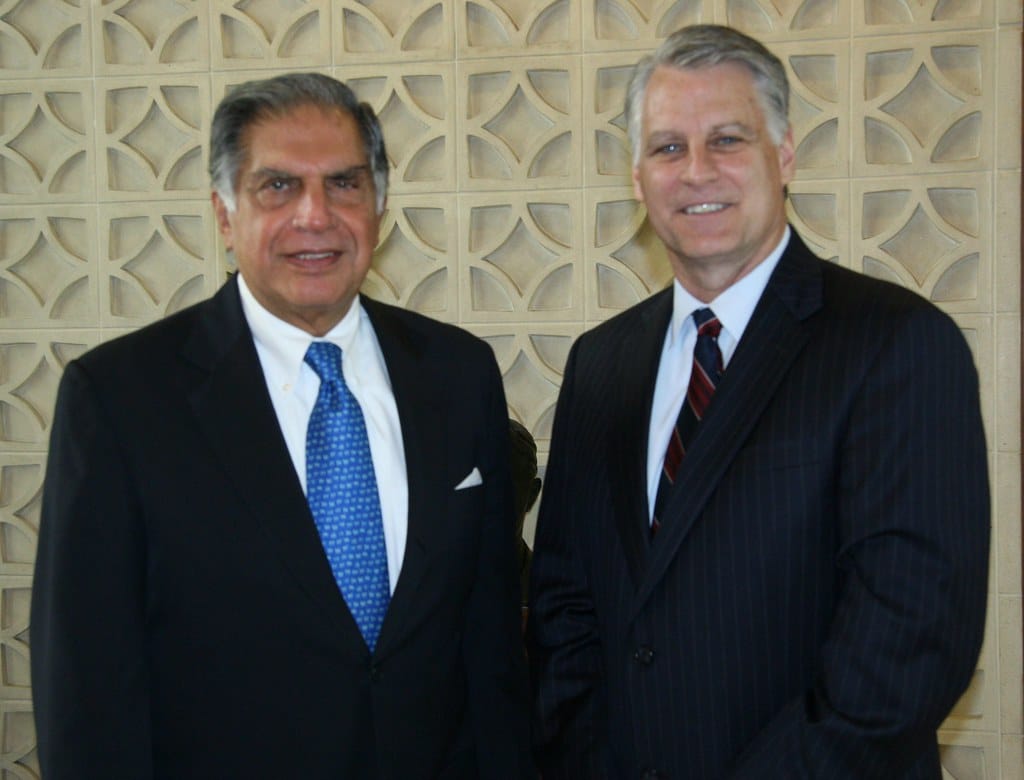Ratan Tata, a name synonymous with the Tata Group, stands as one of India’s most transformative leaders. Known for his visionary approach and humility, Tata’s journey to the top wasn’t straightforward. Through trials, setbacks, and revolutionary ideas, Ratan Tata transformed Tata Group from a primarily domestic conglomerate into an international powerhouse. In doing so, he also set an example of leadership rooted in values, resilience, and purpose. This article delves into Ratan Tata’s early challenges, leadership style, and how he redefined corporate India.
Early Life and Background of Ratan Tata
Born into a prominent Parsi family, Ratan Tata’s early life was far from ordinary. However, behind the privileges lay a life marked by family upheaval and challenges. After his parents’ separation, young Ratan, alongside his brother Jimmy, moved to Mumbai, where they encountered a series of personal and social challenges that would shape their characters profoundly.
Challenges in Ratan Tata’s School Life
A Rough Start at Cathedral and John Cannon
Attending the elite Cathedral and John Cannon School in Mumbai in the late 1940s came with its own set of issues for Ratan Tata. The school’s “anglicized” culture did not resonate with him, and he struggled to fit in, leading to feelings of isolation and discomfort.
Social Challenges and Isolation
Being raised in a family marked by separation, Tata faced additional social stigma and teasing from classmates. The lack of a stable family unit made him “conspicuous and outclassed,” intensifying his sense of alienation.
Influence of Teachers: Support and Struggles
Tough Mathematics Teacher
Despite his love for learning, Ratan encountered teachers who were less than supportive. A harsh mathematics teacher often berated him, intensifying his early struggles with confidence.
Favorite Teacher, Glenn Howell, and His Influence
On the brighter side, an Anglo-Indian teacher named Glenn Howell, who taught geography and English, became a source of encouragement. Howell’s support allowed Ratan to excel in these subjects, fueling his love for learning and providing him with a rare positive anchor during his school years.
Family Dynamics and Personal Struggles
Impact of Parents’ Separation
Following his parents’ separation, Ratan’s life changed dramatically. He and his brother grew more reliant on their father, Naval Tata. The absence of a conventional family environment left lasting impacts on the two boys, driving them to seek security and acceptance wherever possible.
Insecurity and Tagging Along with His Father
In their father’s presence, Ratan and Jimmy found a sense of belonging, often tagging along to social gatherings and Sunday lunches at Juhu. Here, young Ratan observed a more complex world, one that would subtly shape his character and outlook.
Ratan Tata’s Limited Friend Circle
During his formative years, Ratan had a limited friend circle. His closest friends included Zubin Mehta, who would go on to become an orchestral conductor, and Behram Dubash, now a veteran in the shipping industry. These friendships offered some relief from the loneliness that marked his early life.
Finding His Ground: Early Taste of Responsibility
At family gatherings, Ratan had his first taste of independence and social responsibility. While other children socialized freely, he took on a more observant role, learning through osmosis and quietly forming his identity amidst influential adults.
First Experience with Liquor: A Symbol of Social Exposure
Attending social gatherings exposed Ratan to various aspects of adult life, including liquor. While friends encouraged him to partake, Ratan found no appeal in alcohol, a stance that hinted at his ability to make individualistic choices, uninfluenced by social pressure.
Early Career and Entry into the Tata Group
Ratan began his career with the Tata Group by starting at the bottom, an unusual route for someone with his background. He initially worked on the shop floors of Tata Steel, giving him hands-on experience and an understanding of the company’s operations from the ground up.
Challenges of Leadership Transition at Tata Group
Transitioning After JRD Tata
After years of dedication and proving his mettle, Ratan was chosen to succeed JRD Tata, the group’s former chairman. Despite his selection, the transition wasn’t smooth. Ratan faced skepticism from senior management figures, who doubted his experience and readiness.
Overcoming Skepticism Among Senior Members
Many senior members of Tata Group, such as Russi Mody and Sumant Moolgaokar, were seasoned executives with impressive track records. Winning over this inner circle required Ratan to demonstrate patience, foresight, and an innovative mindset.
Leadership Philosophy and Vision of Ratan Tata
Ratan Tata’s leadership emphasized growth through integrity, humility, and social responsibility. His belief in ethical business practices and community welfare set the Tata Group apart in a world driven by profit maximization.
Turning the Tata Group International
Landmark Acquisitions and Global Expansion
One of Ratan Tata’s most significant achievements was transforming Tata into a global brand. His visionary moves, like acquiring iconic brands such as Jaguar Land Rover and Corus Steel, put the Tata Group on the international map, showcasing Indian business capabilities on a global scale.
Role in Economic Liberalization and India’s Global Image
Tata’s strategies aligned with India’s economic liberalization policies in the 1990s. His international expansion not only benefited the company but also contributed to India’s image as an emerging economic power, inspiring future leaders to think globally.
Ratan Tata’s Resilience and Innovation Mindset
Under Ratan Tata’s leadership, the group witnessed groundbreaking innovations, from the Tata Nano to Tata Consultancy Services. His resilience in the face of doubt and his vision for accessible products and services shaped his legacy as a trailblazer.
Legacy and Lessons from Ratan Tata’s Journey
Ratan Tata’s journey demonstrates that true leadership is a blend of resilience, empathy, and foresight. His life, from humble beginnings to his rise as one of India’s most respected industrialists, serves as an inspiring lesson for aspiring leaders.
How Ratan Tata Redefined Leadership
Ratan Tata’s story is one of perseverance, integrity, and a profound commitment to both his people and his nation. As he navigated through personal and professional challenges, he didn’t just build a legacy for himself but redefined what leadership means in the Indian context. His journey remains a beacon of hope and guidance for leaders and dreamers alike.
FAQs
1. What challenges did Ratan Tata face in his school years?
Ratan Tata faced isolation and bullying, largely due to family separation and an unfamiliar school culture.
2. How did Ratan Tata start his career at Tata Group?
He began on the shop floors of Tata Steel, learning operations from the ground up.
3. Why did JRD Tata choose Ratan as his successor?
Ratan was chosen for his vision, resilience, and leadership potential, not merely for his Tata surname.
4. What were Ratan Tata’s major contributions to Tata Group’s global expansion?
He led major acquisitions, such as Jaguar Land Rover, which elevated Tata Group’s global status.
5. What is Ratan Tata’s leadership philosophy?
His leadership emphasizes ethical business practices, community welfare, and social responsibility.
And also read our latest blog aloso : Tata Trusts Meeting Today: Decision About Successor on Agenda, Noel Tata Likely to Inherit Ratan Tata’s Legacy




Nice information
Thank You